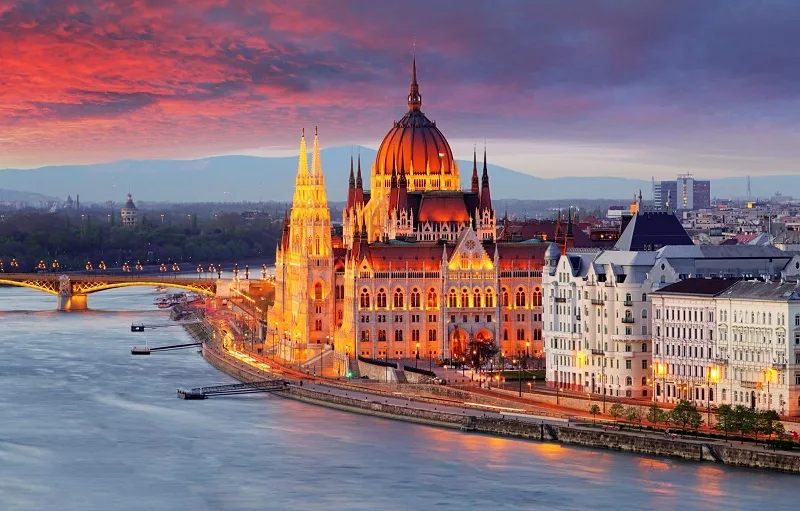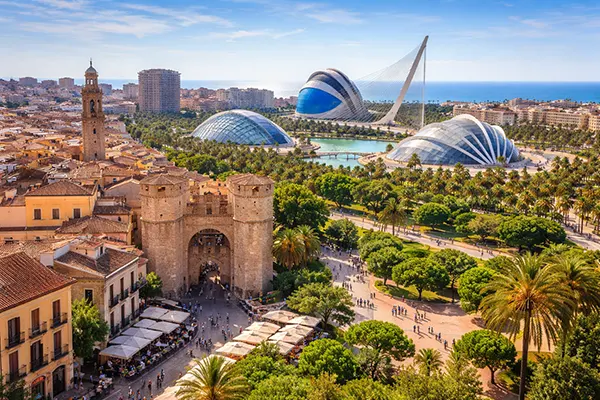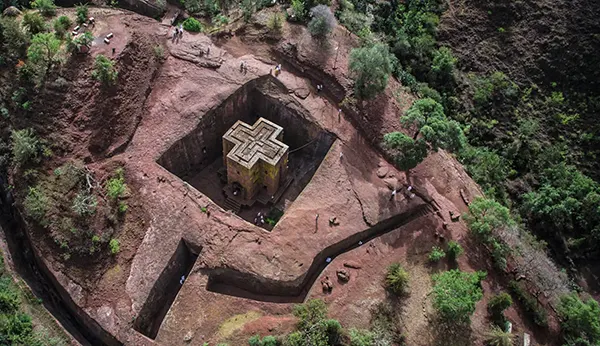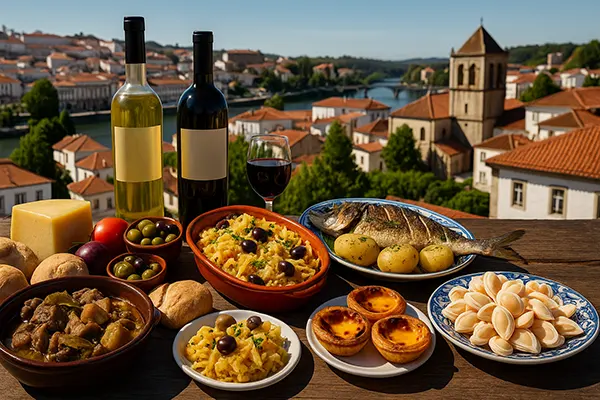
Budapest: What Beautiful in That City That You Must Visit
Budapest, the capital of Hungary, is a city that seamlessly blends rich history with vibrant modernity. Founded in 1873 through the unification of Buda, Pest, and Óbuda, Budapest has evolved into one of Europe’s most captivating cities. Known for its stunning architecture, thermal baths, and a thriving cultural scene, this city offers something for every traveler. Whether you are interested in exploring historical landmarks or enjoying the lively atmosphere of its streets, Budapest is a destination that should be on everyone’s travel list.
What Kind of City is It and When Was It Founded?
Budapest, as we know it today, was officially founded in 1873 with the unification of three distinct cities: Buda, Pest, and Óbuda. However, the area’s history dates back to Roman times, when it was known as Aquincum, the capital of the Roman province of Pannonia. The city has since witnessed numerous historical events, including the Ottoman occupation and the Austro-Hungarian Empire, each leaving a unique mark on its architectural and cultural landscape.
Modern Budapest is a bustling metropolis that retains its historical charm while embracing contemporary trends. The city is divided by the Danube River, with Buda on the western bank and Pest on the eastern side. Buda is known for its hills and historic sites, while Pest is the flat, commercial heart of the city. The combination of these contrasting areas gives Budapest its unique character, making it a city that appeals to a wide range of visitors.
What Attractions Are There?
Budapest is home to a plethora of attractions that cater to various interests. A visit to the Buda Castle is a must for anyone interested in history and architecture. This UNESCO World Heritage site, perched atop Castle Hill, offers breathtaking views of the city and houses several museums, including the Hungarian National Gallery. Another iconic landmark is the Parliament Building, a magnificent example of Gothic Revival architecture, located along the Danube River. A guided tour of this building provides insights into Hungary’s political history and architectural heritage.
For those seeking relaxation, Budapest’s thermal baths are not to be missed. The Széchenyi Thermal Bath is one of the largest spa complexes in Europe, offering a variety of indoor and outdoor pools, saunas, and wellness treatments. These baths are not only a place to unwind but also a cultural experience, as thermal bathing has been a part of Hungarian life for centuries. Another notable bath is the Gellért Thermal Bath, known for its Art Nouveau architecture and luxurious setting.
The Culinary Scene in Budapest
Budapest’s culinary scene is a delightful mix of traditional Hungarian dishes and modern gastronomy. The city’s food markets, such as the Great Market Hall, are excellent places to sample local specialties like goulash, chimney cake, and Hungarian sausages. These markets also offer a wide variety of fresh produce, meats, and spices, reflecting the rich agricultural heritage of Hungary.
For a more refined dining experience, Budapest boasts numerous Michelin-starred restaurants that serve contemporary Hungarian cuisine. Restaurants like Costes and Onyx are renowned for their innovative dishes that combine local ingredients with modern cooking techniques. Wine enthusiasts will also appreciate Budapest’s wine bars, where they can taste Hungary’s famous Tokaji and Bull’s Blood wines.
Nightlife and Entertainment
Budapest is also known for its vibrant nightlife, which caters to all tastes and preferences. The city’s famous ruin bars, located in the old Jewish Quarter, offer a unique experience. These bars are set in abandoned buildings and courtyards, decorated with eclectic and often bizarre furnishings, creating an atmosphere that is both quirky and inviting. Szimpla Kert is perhaps the most famous of these ruin bars and is a must-visit for anyone looking to experience Budapest’s alternative nightlife.
For those interested in a more traditional form of entertainment, Budapest has a thriving classical music scene. The Hungarian State Opera House and the Palace of Arts regularly host performances by world-class musicians, offering everything from opera and ballet to symphony concerts. Additionally, Budapest’s theaters and concert halls provide a wide array of cultural events, making the city a hub for arts and culture.
Another highlight of Budapest’s nightlife is its Danube River cruises. These cruises offer a unique perspective of the city’s illuminated landmarks, including the Parliament Building and the Chain Bridge. Whether you choose a dinner cruise or a simple sightseeing tour, the experience of gliding along the Danube under the city lights is unforgettable.

Shopping and Souvenirs
Shopping in Budapest is an experience that ranges from high-end fashion boutiques to charming local markets. Andrassy Avenue, often referred to as the Champs-Élysées of Budapest, is home to luxury brands and designer stores, making it the perfect destination for fashion enthusiasts. In contrast, Váci Street, located in the heart of Pest, offers a mix of international retailers and Hungarian shops selling everything from clothing to cosmetics.
For those looking for unique souvenirs, the city’s markets and specialty shops are the places to go. The Great Market Hall not only offers fresh food but also a variety of handmade crafts, traditional Hungarian embroidery, and paprika, the spice that is synonymous with Hungarian cuisine. Another great spot for souvenirs is the Ecseri Flea Market, where you can find antiques, vintage items, and rare collectibles, all of which make for memorable keepsakes.
Events and Festivals
Budapest hosts a variety of events and festivals throughout the year, each celebrating a different aspect of the city’s rich cultural heritage. The Budapest Spring Festival is one of the most significant cultural events in the city, featuring performances by renowned artists in music, dance, and theater. This festival is a celebration of both classical and contemporary arts, attracting visitors from all over the world.
Another popular event is the Budapest Wine Festival, held at the Buda Castle. This festival showcases the best of Hungarian wines, with tastings, workshops, and live music providing a festive atmosphere. It is an excellent opportunity to explore Hungary’s winemaking traditions and sample some of the country’s finest wines.
In addition to these major festivals, Budapest also hosts smaller events such as food markets, art exhibitions, and street fairs. No matter when you visit, there is always something happening in the city, ensuring that your stay is filled with entertainment and cultural enrichment.





